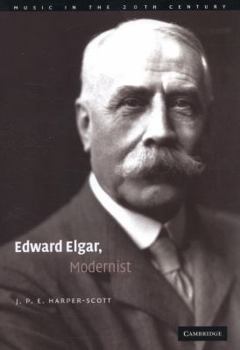Edward Elgar, Modernist
(Part of the Music in the Twentieth Century Series)
Select Format
Select Condition 
Book Overview
The first full-length analytical study of Edward Elgar's music, this book argues that Elgar was a modernist composer, and that his music constitutes a pessimistic twentieth-century assessment of the nature of human being. Focusing on Elgar's music rather than his life, Harper-Scott blends the hermeneutic and existential philosophy of Martin Heidegger with music-analytical methods derived from Heinrich Schenker and James Hepokoski. In the course of engaging with debates centred on duotonality in musical structures, sonata deformations, meaning in music, the nature of tragedy, and the quest narrative, the book rejects poststructuralist and literary-theoretical interpretations of music, radically interprets Schenkerian theory, and tentatively outlines a new space - a Heideggerian 'clearing' - in which music of all periods can be understood to operate, be experienced and be understood. The book includes a detailed glossary which provides the reader with clear definitions of important and difficult terms.
Format:Paperback
Language:English
ISBN:0521107547
ISBN13:9780521107549
Release Date:April 2009
Publisher:Cambridge University Press
Length:272 Pages
Weight:0.96 lbs.
Dimensions:0.6" x 6.7" x 9.6"
Customer Reviews
0 rating





